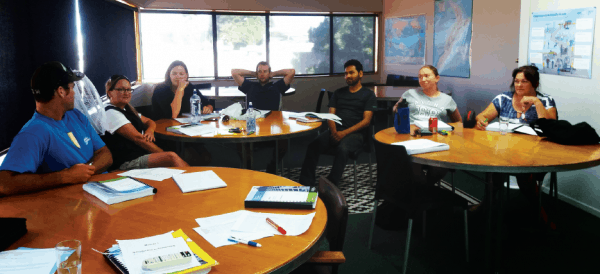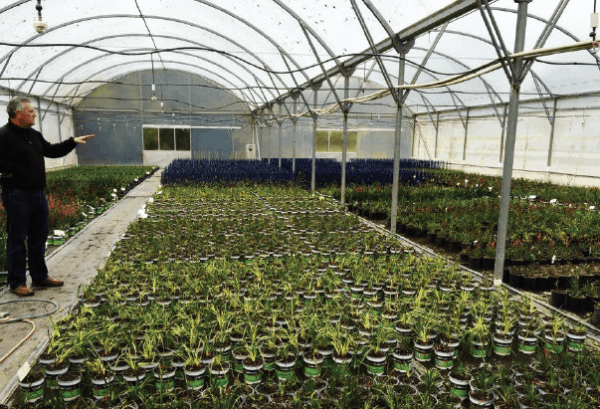We are all aware of the huge growth occurring in the horticultural sector nationally. Alongside that growth is a huge demand for unskilled and skilled workers to take on the varied roles in the sector. With this in mind, this article focuses on a group of individuals who have chosen to forsake their Tuesday evenings to attend Lincoln University Diploma in Horticulture tutorials provided by Fruition Horticulture in Tauranga and Nelson.

The group ranges from those completely new to the industry to those who are fourth-generation kiwifruit growers, those who own orchards and those who work with industry service providers. Also in the group are those working outside of kiwifruit, in greenhouse vegetable production in the Waikato and avocado production.
The diversity of the group creates a great opportunity for sharing a broad range of skills, knowledge and ways of thinking.
When asked why they chose the Regional Diploma to further their study, all of the students emphasised their desire to gain a well-recognised horticultural qualification, while being able to remain in full-time employment and meet their family commitments. To gain this qualification otherwise would mean shifting to Christchurch for at least nine months.
Other reasons for choosing this qualification over others was the knowledge shared within the diverse group of learners and by the tutors who work closely with the horticultural industry, some of whom are orchardists themselves.
Student Tammy Hill said that practical knowledge was a key. “We have the benefit of many tutors that are growers or horticulturalists that have a great understanding of the industry,” Tammy said. “Fruition is a well-known company in the kiwifruit industry and this adds extra appeal to the programme.” The small-group learning environment was also important, where ideas were shared between industries and between facilities. “We can easily work together and share ideas which we can relate to our daily lives/jobs,” said Tammy. The small class also makes the learners feel comfortable.
“Often it feels like a one-on-one sessions,” Levi Smith, an employee in a large kiwifruit enterprise, said. “They make it easy to ask questions which helps in my learning.” The format of the Regional Diploma programme also enables the learners to put into practice what they are learning. They are not learning theory that is disconnected from their daily lives. Levi valued being able to gain some of the theory and put it into practice: “Knowing why you undertake certain practices in your work”, while Toni Morrison – an advisor for a local avocado service provider – added: “Almost every day I have the opportunity to use my newly acquired ‘growing’ facts.”
 The students also valued the field trips arranged as part of the programme. During the field trips there is the opportunity to look at the wider horticultural industry.
The students also valued the field trips arranged as part of the programme. During the field trips there is the opportunity to look at the wider horticultural industry.
“I learn a great deal from these and love meeting all the amazing people in the community,” Tammy explained. Two of the current students work at Plant and Food Research in Te Puke. One of these students, Natalie Taufa, enjoyed the value of gaining an understanding of the kiwifruit industry as a whole. “I have picked up a lot of information and practices from the field trips that I can implement in my work,” she said. While increasing skills and knowledge is valued by the learners while gaining a formal qualification people in the class are also aware of the value achieving the qualification will have in making progress in their chosen career. “Working in a science field, there is a high importance put on education so I would like to continue advancing in the horticulture industry,” Natalie said. Another student saw the qualification as an opportunity to move into a career marketing New Zealand produce internationally.
Working in the kiwifruit industry there are endless opportunities for increasing skills and knowledge. Simply observing what is happening on the orchard or in the packhouse in response to climatic conditions provides opportunities to integrate research with experience. The Orchard Productivity Centre within Zespri provides webinars and fielddays to improve the knowledge base of the industry. Short courses are available and learning can be acquired on-line via Youtube or other websites. The Lincoln Regional Diploma in Horticulture is one example of an opportunity here in the Bay of Plenty and in Nelson where learners can benefit from a small class tutorial format to increase skills and knowledge but also have this recognised in a formal qualification.